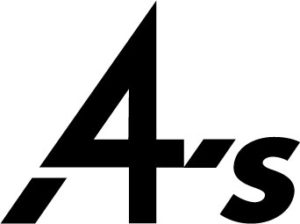 The 4A’s Transformation conference happened last week in downtown Los Angeles. While the topics focus primarily on the advertising and marketing industry, some content stood out as also applicable to PR.
The 4A’s Transformation conference happened last week in downtown Los Angeles. While the topics focus primarily on the advertising and marketing industry, some content stood out as also applicable to PR.
Given prior discussion around evolving PR agency models in “The Rise of Independent PR”, the panel “What is the agency of the future?” stood out for obvious reasons. Here’s the description:
From small independents, to integrated mid-sized agencies to mega global media players, everyone wants to have the most efficient, successful and innovative agency model for the future. Agencies of different shapes and sizes debate who’s got the winning formula.
As with most panels, what was actually discussed didn’t really end up addressing the subject, though there were interesting broad-strokes takeaways.
Being independent (as in no holding company) brings freedom – a word used repeatedly throughout the session. Freedom to experiment, to re-organize, to expand. Barry Wacksman, EVP, Global Chief Strategy Officer, R/GA posed the question, are you free to do the right thing?
“Not many agencies are free; when they are smaller they have that ability…the agency of future is people who are prepared to control their own destiny.”
Control their own destiny – a fitting turn of phrase. As I argue in Rise of Independent PR, this is a massive emerging workforce who simply wants to control their own destiny. We’re seeing PR agencies expand into normally uncharted waters, or at least those typically left to marketing agencies, seeking to control their destiny of not being pigeonholed into the traditional PR sandbox. Advertising and marketing agencies are also fighting this in their own way.
What’s clear is now is not the time for business as usual. There is an evolution happening and it’s bringing us all closer together – PR, marketing and advertising.
Wacksman also brought up that agencies of the future need to provide holistic solutions to brands who require execution across a range of digital activations. He commented “this is a question the advertising and marketing industries have been grappling with and trying to train staff around for years.” PR is no different. In parallel is the need for expanded skill sets across channels from PR pros and the similar challenge of how to train staff to be more “strategic”, more “holistic” and “business minded.”
Carl Johnson, Founding Partner & Global CEO, Anomaly hit on that point discussing the need to shift focus to “business outcomes,” a term I’m increasingly hearing within the PR industry regarding metrics, especially with experienced independents who’ve logged hours in-house. Johnson said, “We need to train people to think like business people and not advertising people. With that point of view we need to be as entrepreneurial as possible.”
PR pros need the same training. If they were able to start early in their careers, approaching the craft with a business-lens versus primarily a press-hit-lens, they might have clients stick around a lot longer – especially those mid-level agencies competing against industry stalwarts for big dollar retainers. I have a theory about this training gap, on both sides of the aisle (PR and business), which I will be sharing very soon.
Another interesting comment, also from Wacksman, was the increase of brands building in-house agencies who are being staffed, in part, by senior talent defecting from traditional agencies – or just being acquired like Shisheido did with Jwalk. They want something different and who can blame them? PR people leave agency to go in-house all the time. It affords the opportunity to dig deep and have more control – and it’s ra welcome change from agency life.
It will be interesting to see how outsourced ad and marketing agencies alter their offerings to integrate with these newly forming in-house teams. On the PR front, this is an excellent opportunity for in-house PR/Comms teams, and their agencies, to integrate at the ground level while campaigns are being formulated.
Overall, the agency of the future sounds like it’s still got a long way to go.